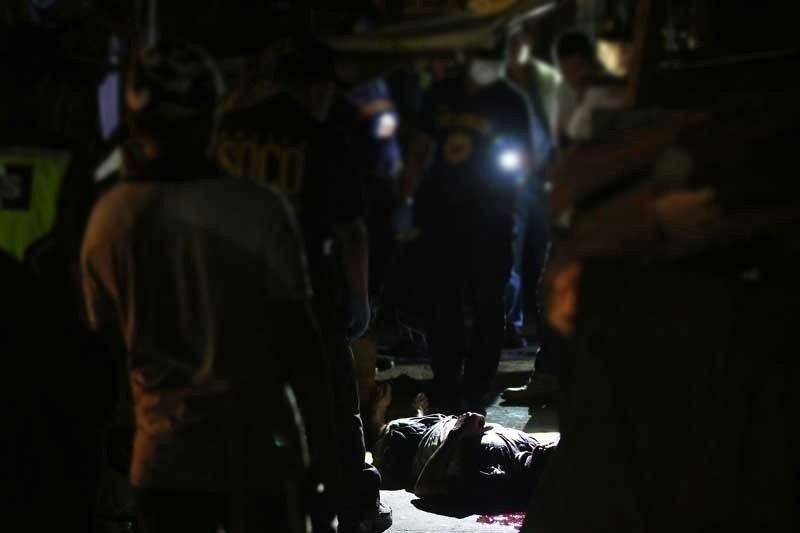Decades of punitive drug war strategies failed – UN

MANILA, Philippines — Decades of punitive strategies of many countries – including the Philippines – in dealing with the narcotics problem have failed to prevent the consumption and spread of illegal drugs, according to the United Nations High Commissioner for Human Rights.
In a report, UN High Commissioner for Human Rights Volker Turk has called for transformative changes in drug policies to make sure such policies adhere to basic principles of human rights.
“From violent crime, to ruin and loss of life, to mass incarceration – the toll is unbearably heavy,” Turk said. “But if drugs destroy lives, the same can also be true of drug policies.”
He said a review of drug policies should have full participation of civil society – with input from people who use drugs – and of all relevant UN bodies, to ensure that drug policies are grounded in human rights, health and development.
According to the 2022 World Drug Report, around 284 million people use drugs worldwide.
He cited the continued uncontrolled growth of global markets in illegal drugs and their impact on societies around the world.
Drug crime, he noted, is one of the chief reasons that over two million people are currently in prisons and other detention facilities.
“In recent years we have seen some politicians directing hatred against people who use drugs; declaring ‘war’ against their own people because of drug-related criminality; militarizing drug law enforcement and, in a few cases, resorting to measures such as widespread extrajudicial killings,” Turk said.
According to Turk, driving the drug trade underground leads to the development of criminal networks.
“It is clear to many that the ‘war on drugs’ is not working. And a number of countries have led the way forward,” he added.
He explained that the “war on drugs” paradigm is also detrimental to public health, noting that fear of arrest and widespread stigma around drug use prevent people who use drugs from accessing health care.
“This is clearly a factor in the very high number of deaths resulting from substance abuse – 1.2 million people in 2019, according to the latest available data.”
The rights chief called on nations to stop the war on drugs.
“Instead, let us focus on transformative change, crafting drug policies which are based on evidence, which put human rights at their center, which are gender-sensitive and which ultimately improve the lives of the millions of individuals affected,” the UN official said.
Türk stated that police forces need to serve and protect everyone in society.
“In the Philippines, where killings in drug-related police operations still occur, my office is working with security actors to strengthen accountability and promote human rights in drug enforcement,” Türk said.
UN human rights experts have recorded a staggering number of unlawful deaths and police killings in the context of former president Rodrigo Duterte’s bloody “war on drugs,” as well as killings of human rights defenders.
The Philippine government has rejected the International Criminal Court’s (ICC) decision to resume investigations of alleged crimes committed during the anti-illegal drug campaign of the Duterte administration.
Meanwhile, House committee on dangerous drugs chair Robert Ace Barbers said yesterday recycling of illegal drugs seized by the Philippine National Police (PNP) and Philippine Drug Enforcement Agency (PDEA) has been going on for the past 20 years.
He said an “asset/informant” revealed in an executive session that PNP and PDEA operatives often use shabu as reward for tips that lead to successful sting operations.
“The asset had confirmed and validated the revelation of PDEA Director Virgilio Lazo the 30 percent scheme as part of the reward demanded by the asset in successul drug operations,” he said.
At a committee hearing last week, Lazo revealed a “commission scheme” wherein informants get around 30 percent the illegal drugs seized by operatives.
Lazo pointed out that he learned about this when he assumed office in November 2022.
“The illegal practice of giving substantial portions of the drugs seized now has a face. In due time, if evidence warrants, criminal charges will be filed,” he maintained.
The lawmaker promised to “unearth more evidence and name names in the succeeding hearings.”
“We will not stop until we have unmasked all these crooks in uniform who have doomed so many lives to live in luxury,” he added. – Sheila Crisostomo
- Latest
- Trending
































